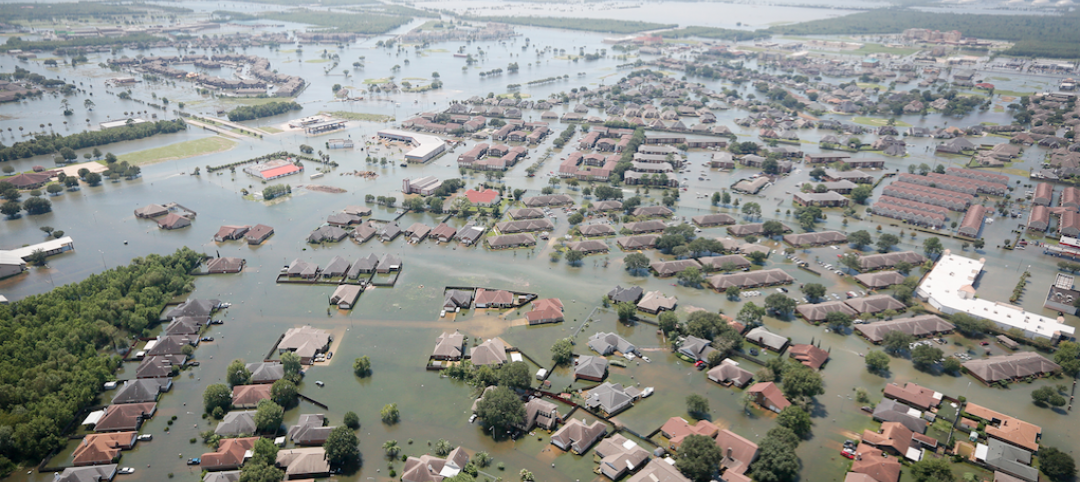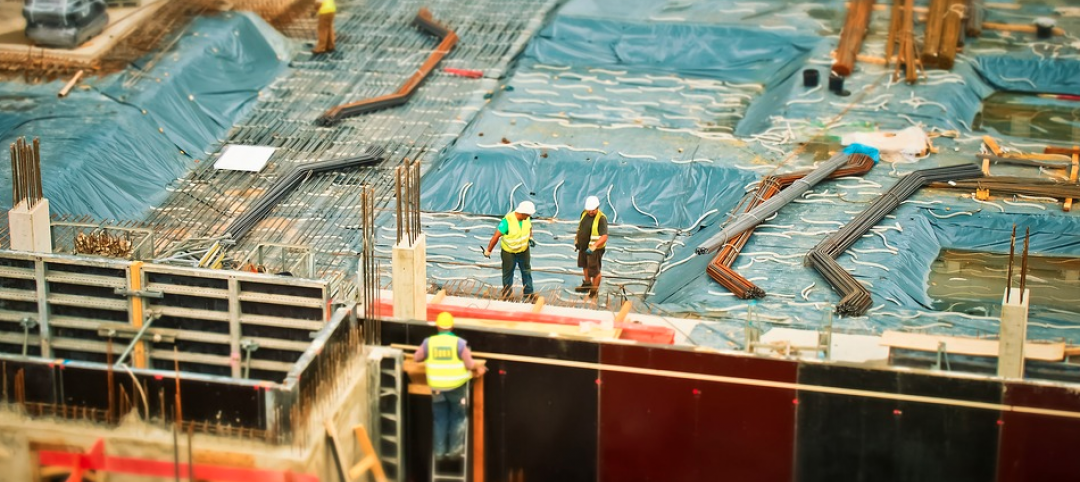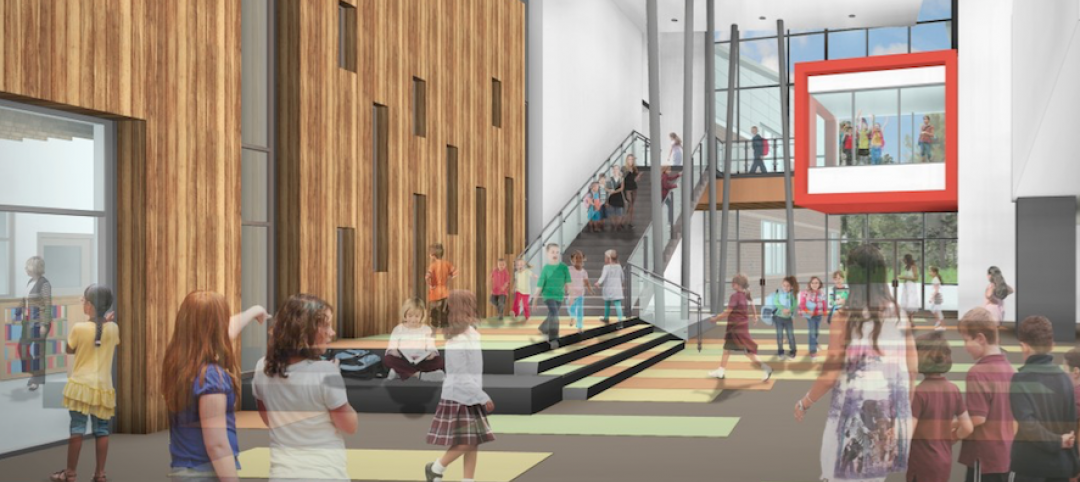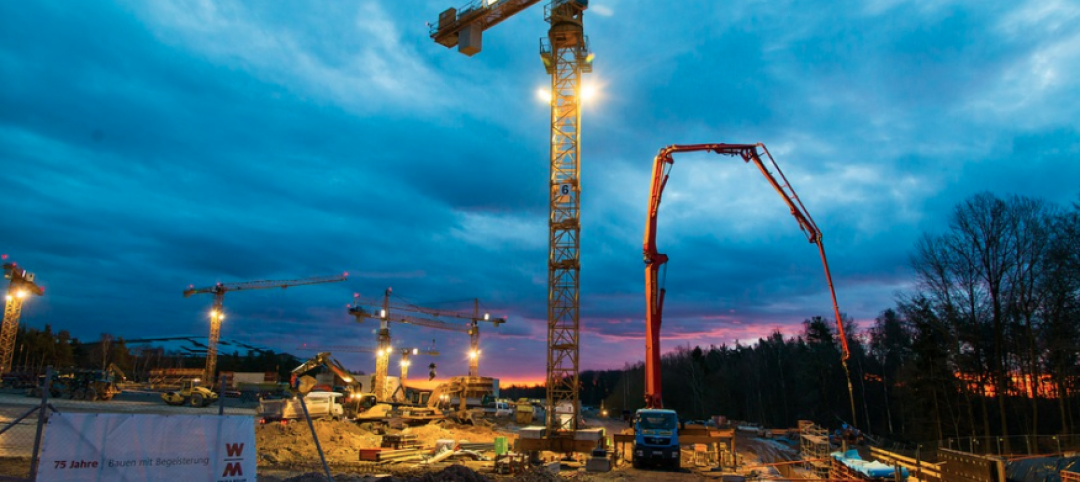The American Society of Civil Engineers estimates that the United States needs to spend $3.6 trillion by 2020 just to bring the country’s infrastructure back to a level described as adequate.
A new report by Transwestern, a privately held real estate firm, makes a case that investing in infrastructure can also be beneficial to surrounding commercial real estate. Called “Cranes and Lanes,” the report identifies major infrastructure projects in nine markets, and describes how the projects are impacting—or are likely to impact—the larger built environment.
“Cities have recognized that in order to stay competitive and generate economic development, the city’s infrastructure must keep up,” adds Brian Landes, a GIS expert and the report’s author. “While projects analyzed in the report run the gamut from new stadiums to reworked interchanges to entirely new districts, they do have one thing in common: a relatively certain boost in rents and occupancy.”
Several of the projects cited revolve around transit, such as the ongoing Modernization Project at Chicago’s O’Hare Airport, which Transwestern sees as a “catalyst for economic growth and job creation.” But there are a number of nonresidential building projects that are also expected to lead to ancillary development and construction.
Examples include:
• SunTrust Park, the new stadium for Major League Baseball’s Atlanta Braves designed by Populous, which should be completed next year. Transwestern says this stadium will bring with it a $400 million shopping, dining and entertainment district, as well as a new Omni Hotel and a 300,000-sf office building that Comcast will occupy.
• Seaport Square is a new neighborhood created from 23 acres of undeveloped land in South Boston’s emerging Seaport District. When it’s completed next year, it will encompass 2.75 million sf of residential, 1.25 million sf of office, 1.25 million ft of retail, 800,000 sf of hotels, 265,000 sf of cultural and civic space, and 2.25 million sf of parking. “The district will spur an evolution of Downtown Boston and shift the commercial center to the south and east,” the report states.
• Hudson Yards is the redevelopment of a vacant former industrial neighborhood along the West Side of Manhattan in New York City. It traces its roots to a 2005 rezoning aimed to transition the area into an extension of the Midtown business district. The project will eventually feature 6 million sf of office, 750,000 sf of retail, 5,000 apartments, 2 million sf of hotel and 14 acres of public space. Completion 2018.
• In San Francisco, Transbay District is currently under development. It will eventually house an intermodal transportation destination and 6 million sf of new office space. The new transit center will house three transportation options: (1) Caltrain will extend its terminus further downtown into the Transbay Transit Center; (2) The center will be the terminus for the future California High Speed Rail Line; and (3) the center will be the hub for regional bus service. Amidst the office build-out will be Salesforce Tower, the corporate headquarters for Salesforce and the second tallest building in the Western U.S. Completion 2020.
• Oakland Global Trade & Logistics Center will sit adjacent to the Port of Oakland on an Army base decommissioned in 1999. The project will bolster the West Coast’s third-largest port by adding an intermodal rail hub, additional railyards, a bulk terminal and more than 1 million sf of warehouse and distribution space. The project, which should be done next year, comes at an important time for the Port of Oakland, which moved nearly 2.3 million containers in 2015 and whose volume is expected to grow in the coming years.
Related Stories
Industry Research | Jan 30, 2018
AIA’s Kermit Baker: Five signs of an impending upturn in construction spending
Tax reform implications and rebuilding from natural disasters are among the reasons AIA’s Chief Economist is optimistic for 2018 and 2019.
Market Data | Jan 30, 2018
AIA Consensus Forecast: 4.0% growth for nonresidential construction spending in 2018
The commercial office and retail sectors will lead the way in 2018, with a strong bounce back for education and healthcare.
Architects | Jan 29, 2018
14 marketing resolutions AEC firms should make in 2018
As we close out the first month of the New Year, AEC firms have made (and are still making) plans for where and how to spend their marketing time and budgets in 2018.
AEC Tech | Jan 29, 2018
thyssenkrupp tests self-driving robot for ‘last mile’ delivery of elevator parts
“With driverless delivery robots, we could fill a gap and get spare parts from our warehouses to the jobsite faster,” said thyssenkrupp SVP Ivo Siebers.
Contractors | Jan 26, 2018
6 regional construction trends for 2018
2018 should be a good year for construction but there are at least 4 things that can influence costs.
K-12 Schools | Jan 25, 2018
Cost estimating for K-12 school projects: An invaluable tool for budget management
Clients want to be able to track costs at every stage of a project, and cost estimates (current and life cycle) are valuable planning and design tools, writes LS3P's Ginny Magrath, AIA.
AEC Tech | Jan 25, 2018
Four high-tech solutions to mitigate theft on the jobsite
Geo-fencing and drone surveillance are among the tech solutions for protecting jobsites from asset loss.
Multifamily Housing | Jan 24, 2018
Apartment rent rates jump 2.5% in 2017, led by small and mid-sized markets
The average price for one-bedroom units increased the most.
Hotel Facilities | Jan 24, 2018
U.S. hotel markets with the largest construction pipelines
Dallas, Houston, and New York lead the way, with more than 460 hotel projects in the works.
Architects | Jan 24, 2018
Strong finish for architecture billings in 2017
The Architecture Billings Index concluded the year in positive terrain, with the December reading capping off three straight months of growth in design billings.
















